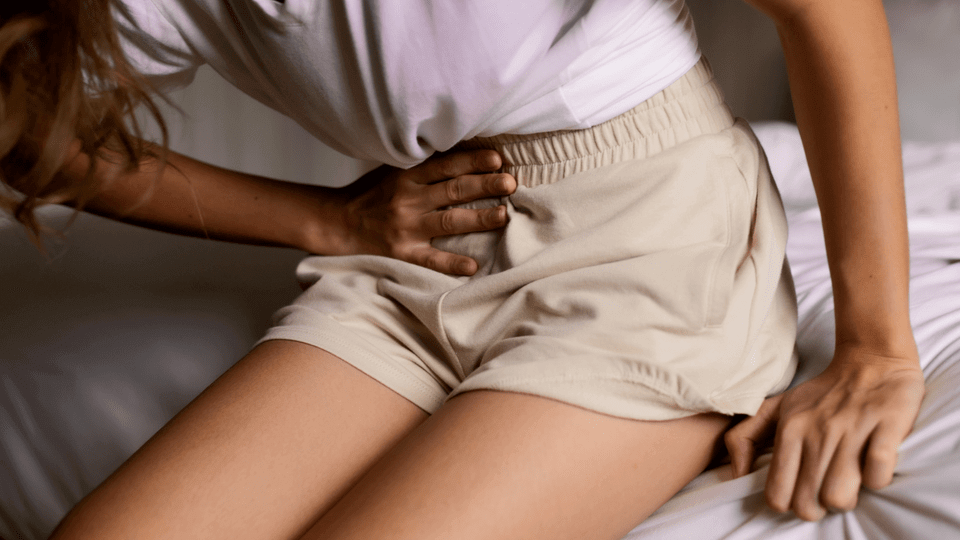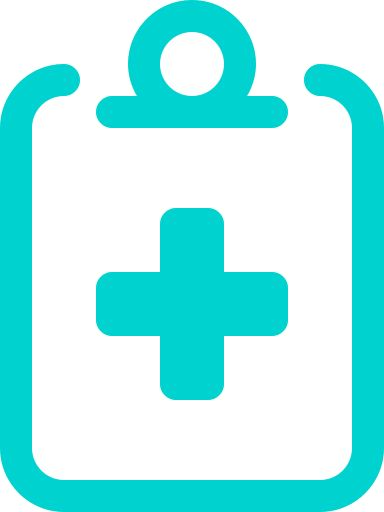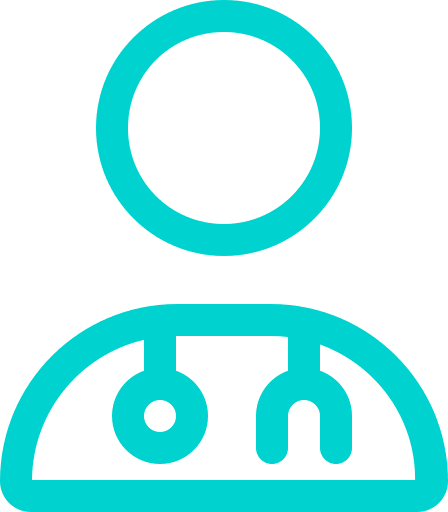Bladder Infection & Inflammation:
What is Cystitis?


Cystitis is inflammation of the bladder. This can be caused by lots of things, but it is most often caused by infection in the bladder. This is extremely common and affects women more than men. But why do we develop bladder infections and how do we prevent it? Here, we’re going to answer the question “what is cystitis?” and take a look at treatments and preventative measures that can help. Let’s get started!
What is Cystitis?
Cystitis is when the bladder becomes inflamed and is usually caused by an infection in the bladder. This is known as a lower urinary tract infection (UTI). But how does this happen? It’s quite simple. When bacteria enter the bladder, it can cause an infection which leads to cystitis!
As mentioned, women are more prone to developing UTIs, such as cystitis, because their urethras (the tube that carries urine from the bladder and out of the body) are shorter than in males and closer to the back passage (where there are lots of bacteria!). This means that it’s easier for bacteria to get to the bladder and cause infection and inflammation.
What Causes Cystitis?
The most common cause of female cystitis is infection with the Escherichia coli (E Coli) bacterium. This usually lives in our intestines but can get into the urethra and then the bladder from our faeces (poo). This can be avoided by practising wiping from front-to-back after using the toilet though!
Sexual activity can also increase the risk of cystitis bladder infection for both men and women. The easiest way to prevent this from happening is to make sure you pee as soon as possible after sex. This will help flush out any bacteria that have made their way into the urethra.
There are some other factors that can increase your likelihood of developing cystitis from infection, such as:
- Being older than 65 years old (10% of women over this age report having a UTI in the last 12 months)
- Hormonal changes e.g. during pregnancy, menopause, menstrual cycle
- Using a diaphragm/spermicide & condoms for contraception
- Diabetes
- A weak immune system
Bladder Infection Symptoms
Now that we know what cystitis is and what causes it, how do we know if we have it? Here are some of the most common symptoms associated with cystitis or a bladder infection:
- Peeing more than usual
- Pain, stinging or a burning sensation when peeing
- Needing to pee at night
- Suddenly and urgently needing to pee
- Dark, strong-smelling or cloudy pee,
- Pain low down in the tummy (not the sides)
- Blood in your pee*
- Feeling feverish as well as experiencing other urinary symptoms
*If you have a temperature or blood in your urine, you should arrange an in-person assessment with your local GP as soon as possible.
A temperature, flank (side) pain, vomiting or blood in your urine could indicate Pyelonephritis (inflammation of the kidney). This is another type of UTI where the infection is in the kidneys. Whilst cystitis is usually self-limiting and not serious, pyelonephritis can potentially lead to kidney damage and sepsis (severe infection) and so, requires urgent medical treatment.
It’s important to note that cystitis symptoms can be very similar to the symptoms associated with urethritis (inflammation of the urethra), another type of UTI. If you experience pain during sex, itchiness at the tip of the urethra, penile discharge (white, cloudy discharge or blood) or pelvic pain, it is more likely that you have developed urethritis and should see a doctor for assessment.

Are There Different Types Of Cystitis?
There are different types of cystitis, acute and chronic.
Acute causes such as infection, cause a sudden onset of symptoms and usually settle quickly and completely. Chronic cystitis is when the symptoms are persistent, as in Interstitial cystitis. This is also known as bladder pain syndrome (PBS), and causes pelvic pain and difficulty urinating. Interstitial cystitis (IC) can be difficult to diagnose because there is no single test that can confirm the condition. In addition, symptoms associated with interstitial cystitis can also be caused by other conditions.
Interstitial Cystitis Symptoms
The symptoms of interstitial cystitis can mimic those associated with a bladder infection and inflammation, making it tricky to diagnose. For instance, both conditions cause the sudden and strong need to pee, peeing more than usual, and waking up to pee during the night. However, interstitial cystitis can cause you to feel pain in your lower tummy as the bladder is filling up. This pain is relieved when you go to the bathroom. You may also struggle with incontinence or going to the loo. The symptoms of interstitial cystitis do not usually settle well with antibiotic treatment and urine tests tend to be negative.
As the management of these conditions is very different, it is important to arrange a visit with your local GP if you have recurrent/ persisting symptoms, especially if they do not respond to treatment. If you do have interstitial cystitis, there are a range of treatments available and your doctor will be able to advise you on what’s best for you.
UTI Treatment: How is Cystitis Treated?
How cystitis is treated depends on the severity of the infection. Generally speaking, cystitis isn’t a cause for major concern. Mild cases often go away by themselves after a couple of days. Alternatively, you may need to look for cystitis treatment over-the-counter in your local pharmacy. You can try some of the following to help clear the infection and ease symptoms:
- Take paracetamol or ibuprofen to help ease tummy pain
- Cystopurin sachets (available in your local pharmacy)
- Drink plenty of water (minimum of 2.5 litres)
- Avoid coffee and alcohol (they are known to irritate the bladder)
- Hold a hot water bottle or heat pad on your tummy to ease pain
- Avoid having sex until your infection has cleared entirely
- Gently wash around your genitals with a soap-substitute or skin-sensitive soap
- Always wipe front-to-back after going to the toilet
Whilst most infections do clear up by themselves, sometimes antibiotics for UTIs, such as cystitis, are needed. If you feel your symptoms are not improving in a couple of days, or are getting worse, and you have already tried over-the-counter treatments, it’s important to get medical advice.
Repeat Prescription
Female Cystitis Treatment
Request a prescription for Female Cystitis Treatment online with Webdoctor.ie! Once your request has been approved, we can send your prescription directly to your chosen pharmacy via secure Healthmail.
Where Can I Get Cystitis Antibiotics?
While all GPs will be able to treat cystitis with antibiotics, if you are female (birth sex), between the ages of 17 and 65 years, and you have been experiencing urinary symptoms associated with cystitis for 48 hours, you might be able to avail of Webdoctor.ie’s online prescription service!
Through our online Cystitis Treatment prescription service, we can offer our patients prescriptions for nitrofuran antibiotics, if clinically appropriate.
To request a prescription, all you’ll need to do is fill in a secure suitability questionnaire – we’ll do the rest. Once you have described your symptoms to your doctor, we’ll review your request to make sure it’s clinically safe and suitable for you. Once approved, we’ll send your prescription directly to an Irish pharmacy of your choice via secure Healthmail – it could not be easier!
Please note: This prescription service is only suitable for female (birth sex) patients needing to treat female cystitis – it is not suitable for men.
How It Works
Through an online medical questionnaire, face-to-face video consultation or home health test, our online doctors will review your case and prescribe the best treatment for you.

Step 1
Online Questionnaire

Step 2
Medical Review
